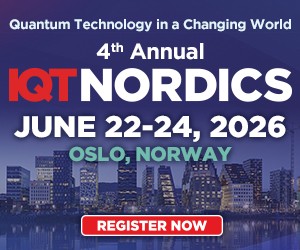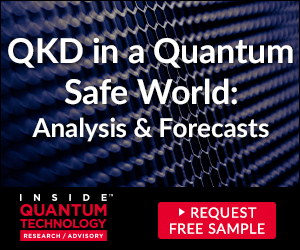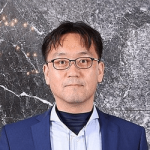Quantum News Briefs October 8: Scalable Parity Architecture for Quantum Optimization with Global Addressing • Q-CTRL Sets Global Quantum Technology Fundraising Record • D-Wave Offers SLAs for Leap Quantum Computing Cloud Service • China Upgrades First Superconducting Quantum Computer Production Line • IonQ Demonstrates Remote Ion-Ion Entanglement • Two Prominent Quantum Vendors in Danger of Being Delisted

Scalable Parity Architecture for Quantum Optimization with Global Addressing
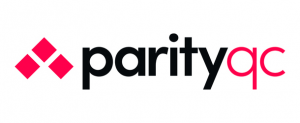 The teams at ParityQC and the University of Innsbruck have reported a significant step forward in simplifying the control of quantum computers This advancement, detailed in the recently published paper titled “Quantum Optimization with Globally Driven Neutral Atom Arrays,” represents a scalable encoding for solving complex combinatorial optimization problems
The teams at ParityQC and the University of Innsbruck have reported a significant step forward in simplifying the control of quantum computers This advancement, detailed in the recently published paper titled “Quantum Optimization with Globally Driven Neutral Atom Arrays,” represents a scalable encoding for solving complex combinatorial optimization problems 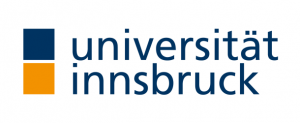 with global laser addressing.
with global laser addressing.
Reducing the complexity of the control of quantum computers is one of the key challenges in atom-based quantum computing. In current schemes, precise control over individual atoms required multiple laser fields, leading to increased hardware complexity and operational challenges.
The team now demonstrates that it is possible to encode problems in a quantum computer without individual addressing, using only a single global laser detuning. Instead of relying on site-dependent laser fields to program, e.g., maximum-weight independent set (MWIS) problems, the team has developed a scheme that uses strategically placed auxiliary atoms to achieve the same effect. The auxiliary atoms simultaneously serve the dual purpose of problem-specific programming and mitigating the side effects of long-range interactions.
This innovation not only reduces the hardware requirements but also simplifies the overall quantum system, making it more scalable and practical for large-scale applications.
Q-CTRL Sets Global Quantum Technology Fundraising Record, Increasing Series B to USD $113M, Led by GP Bullhound
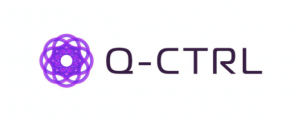 Q-CTRL, the global leader in quantum infrastructure software, today announced the successful expansion of its Series B Funding Round to USD$113M (AUD$166M), with USD $59M of new capital. The Series B-2 all-equity funding round was led by global late-stage venture firm GP Bullhound and saw a dramatic increase in valuation from earlier financing.
Q-CTRL, the global leader in quantum infrastructure software, today announced the successful expansion of its Series B Funding Round to USD$113M (AUD$166M), with USD $59M of new capital. The Series B-2 all-equity funding round was led by global late-stage venture firm GP Bullhound and saw a dramatic increase in valuation from earlier financing.
“We’re very excited that GP Bullhound has led this round,” said Q-CTRL CEO and Founder Michael J. Biercuk. “Their experience and international presence will support us as we continue our expansion, and we look forward to working closely with them as a shareholder and board member.
”The investor syndicate includes venture capital leaders and strategic global defense technology giants reflecting the financial opportunity presented by Q-CTRL’s strong commercials and the critical value of its technology in shaping the quantum industry. New investors include Alpha Edison, Lockheed Martin Ventures, NTT Finance, Salus Group, and TISI; they are joined by repeat contributions from existing investors Alumni Ventures, DCVC, John Eales, ICM Allectus, Main Sequence Ventures, and Salesforce Ventures.
“We are thrilled to support Q-CTRL in unlocking the full potential of quantum technology,” said Per Roman, GP Bullhound Founder and Managing Partner. “At GP Bullhound, we believe that quantum computing and sensing will be central to the next wave of technological transformation, reshaping industries such as finance, transport, and pharmaceuticals. Our investment reflects our commitment to backing visionary companies capable of bringing this revolution from the lab to real-world applications.”
“Our focused view that software can be the key enabler of quantum hardware across all applications has become a key driver of new capabilities in the field and underpins our major commercial partnerships with leading quantum platform vendors, Biercuk added. “This new investment, coupled with our growing portfolio of technical demonstrations, has positioned us for ubiquity and permanence in the industry.”
In Other News: DataCenterDynamics Reports: “D-Wave Offers SLAs for Leap Quantum Computing Cloud Service”
 D-Wave has introduced service-level agreements (SLAs) for its quantum computing cloud service as reported by Dan Swinhoe in October 7 DataCenterDynamics.
D-Wave has introduced service-level agreements (SLAs) for its quantum computing cloud service as reported by Dan Swinhoe in October 7 DataCenterDynamics.
SLAs, D-Wave said it “stands behind the high levels of availability, reliability, and scalability” of its Leap service and its ability to support requirements for commercial-grade quantum applications.
The exact terms of the SLAs were not shared, but the company said Leap can offer 99.9 percent uptime and availability with sub-second solve times, even under heavy customer usage.
Launched in 2018, the Leap quantum cloud service provides real-time access to D-Wave’s annealing quantum computers.
Supercooled quantum processors often require several days of downtime as the fridges they are hosted in can require many hours to cool down and warm up. A limited number of available quantum computers from providers also means customer jobs are often queued onto shared systems.
“When it comes to incorporating quantum computing into a company’s overall IT infrastructure, organizations should consider prioritizing a real-time production-grade quantum cloud service that offers the kind of assurances that service-level agreements provide,” said Heather West, PhD, research manager and analyst with IDC.
In Other News: ECNS Reports “China Upgrades First Superconducting Quantum Computer Production Line”
 China’s first independently developed superconducting quantum computer production line recently commenced upgrades to the Anhui Quantum Computing Engineering Research Center as reported by October 8 ECNS Wire Editor Li Yan.
China’s first independently developed superconducting quantum computer production line recently commenced upgrades to the Anhui Quantum Computing Engineering Research Center as reported by October 8 ECNS Wire Editor Li Yan.
Wukong, a 72-qubit indigenous super conducting quantum chip produced by China’s first superconducting quantum computer production line, has been running smoothly on China’s superconducting quantum computer “Origin Wukong” for nine months.
At present, the scientific research team is striving to develop a new generation of superconducting quantum chips with better performance, higher bit number and stronger stability.
The current assembly hall can accommodate up to five superconducting quantum computers being assembled simultaneously. After expansion, it will be able to meet the demand for assembling at least eight complete superconducting quantum computers at once.
IonQ Demonstrates Remote Ion-Ion Entanglement, A Significant Milestone In Developing Networked Quantum Systems At Scale
 IonQ (NYSE: IONQ) recently announced it has achieved the next milestone on the path towards scaling its quantum systems – demonstrating remote ion-ion entanglement.
IonQ (NYSE: IONQ) recently announced it has achieved the next milestone on the path towards scaling its quantum systems – demonstrating remote ion-ion entanglement.
Building off the ion-photon entanglement achievement announced in February, this demonstration announced in September showcases the second out of four significant milestones required to develop photonic interconnects – a foundational step towards quantum networking and a core component of IonQ’s scaling strategy.
IonQ’s world-class R&D team entangled two trapped ion qubits from separate trap wells using entangled photons to achieve these results. The IonQ team achieved remote entanglement by developing a system to collect photons from two trap wells and routing them to a single detection hub. This critical “point-to-point” step established a quantum communication link – an essential piece in scaling quantum systems. While IonQ has always intended to implement photonic interconnects in its systems, never before has any company demonstrated the ability to bring this technology to an integration stage within a commercially available, enterprise-grade quantum computer. More details about IonQ’s latest milestone are available in the blog post here.
In Other News: The A Register Reports “Two Prominent Quantum Vendors in Danger of Being Delisted”
 Two prominent quantum vendors acknowledge they are at risk of being delisted following shares dropping below the $1 mark, as reported by Dan Robinson in October 7 The A Register.
Two prominent quantum vendors acknowledge they are at risk of being delisted following shares dropping below the $1 mark, as reported by Dan Robinson in October 7 The A Register.
D-Wave posted an update to its website on Friday revealing that it had been notified by the New York Stock Exchange (NYSE) on October 2 that it was not in compliance with the Listed Company rules because the average closing price of its common stock was less than $1 over a consecutive 30-day trading period.
Meanwhile, Rigetti Computing’s stock has been trading at less than $1 since the end of July.
D-Wave, a quantum pioneer, has built its business around a type of processing called quantum annealing. The company has also started to develop its own version of quantum gate technology. D-Wave said that it had notified the NYSE that it intends to cure its stock price and return to compliance with the required listing standard.
Rigetti Computing, once regarded as a potential leader in quantum, boasted of being one of the few companies working on a full-stack solution for hybrid classical/quantum computing. It now faces a compliance period of 180 calendar days, or until March 17, 2025
Heather West, Research Manager for Quantum Computing Infrastructure Systems at IDC discussed disadvantages that quantum startups face, “The long-term development of the technology takes time and money. While established tech companies like IBM have a variety of revenue streams to depend on, startups like Rigetti depend on their quantum revenue only, which is why some startups entered into SPACs.”












